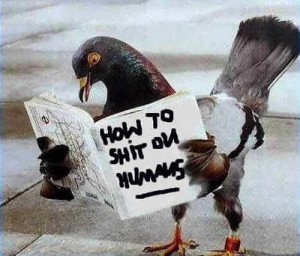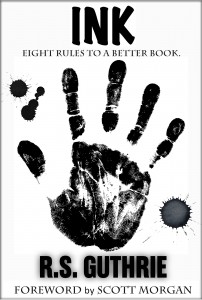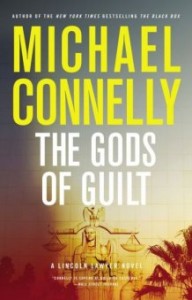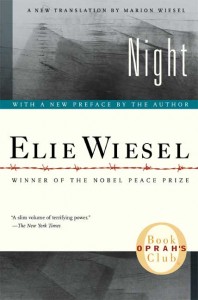 As most of you know from previous posts, comments I’ve made, and for the mind-readers out there, that I believe the faithful old writer’s term “word count” is about as useful to the quality of a book as is the words “pigeon shit”. Now pardon my New York Central Park language, but what in the great, green grass Universe has word count got to do with what’s between the covers? The answer is NOTHING.
As most of you know from previous posts, comments I’ve made, and for the mind-readers out there, that I believe the faithful old writer’s term “word count” is about as useful to the quality of a book as is the words “pigeon shit”. Now pardon my New York Central Park language, but what in the great, green grass Universe has word count got to do with what’s between the covers? The answer is NOTHING.
Now, let’s set some ground rules first:
There are lines, fuzzy as they may get, between calling a piece a short story, a short-short, a novella, a novel—but in the end, if you’re anywhere near the count (and I’m not talking about people running contests where either the point is to write in so many words—normally a smaller number—or having a maximum count so that their readers aren’t judging “short stories” that are 100,000 words long) all I, or anyon e else, care about is how well your book reads. In other words, pay attention to the Eight Commandments of writing a better book (shameless self-plug), NOT word count.
e else, care about is how well your book reads. In other words, pay attention to the Eight Commandments of writing a better book (shameless self-plug), NOT word count.
In fact, I will go as far as to say this: I’ve heard writers talking about word count like men talk about the length of their johnsons. As in, if one novel is 50,000 words, and another is 100,000, there is some implication that longer is better. On the contrary. I would bet anyone whose last name is not Dickens, Tolstoy, or Joyce that a 100,000 word book has a few extra sentences.
More like a hundred.
In all seriousness, if your book is its very best at 100,000 words, you should be writing 100,000 words. If mine is best at 50,000, then so be it. We aren’t talking about changing the oil in an engine here, where there’s a predetermined (and necessary) level of fluid, or a cake recipe, where baking soda confused with baking powder or eggs, flour, etc. in the wrong amounts will cause havoc—we’re talking about a work of art.
How can anyone say what word count a book should be before it’s written? Oh, sure, for ballpark estimates and such. If your best work in Genre A is 100,000 words and now you’re going to crank out some no-fluff, all-action, pulp fiction at 60,000 a pop, talk all day long about your cock size—I mean BOOK SIZE (and I was talking about his CHICKEN, you dirty-minded souls).
 Which segues into another reality: that size, to a point, could have a little to do with price, genre, and some other factors (notoriety, for one—for the foreseeable future, James Lee Burke, Dennis Lehane, Michael Connelly, and Patricia Cornwell are all going to be able to charge 7-8 times what I can for, in some cases, arguably comparable quality).
Which segues into another reality: that size, to a point, could have a little to do with price, genre, and some other factors (notoriety, for one—for the foreseeable future, James Lee Burke, Dennis Lehane, Michael Connelly, and Patricia Cornwell are all going to be able to charge 7-8 times what I can for, in some cases, arguably comparable quality).
Back in the day, when I was paying my hard-earned $25.99 as a teenager for the latest hardback Stephen King novel, would I have noticed 50,000 words versus 100,000? Probably. (Not that anyone will ever have to worry about King writing too few words, but you get the point.) If we were talking about $10-20 per unit here (still talking books, folks), I can see—to a point—where size might come into it. You may personally feel you didn’t get what you paid for if you dropped $16 on a book and read it in one sitting.
Realistically, could I add length to a book and still maintain the quality? Well think about it. I have 6-7 books out there. I just made one into a digital trilogy “boxed set”. All that document is amounts to combining the other three books, which makes for?
A longer word count / bigger book. Granted it would be written much differently because we’re talking three different plot arcs, etc., but if more words were absolutely necessary look at it like this: over a writer’s lifetime, how many words will she or he write? Assuming they are all good, that’s an enormous number of words. All I am saying is write the story. Write it from the core—the heart, the soul. And tell as much little as possible, showing with the absence of need for letters on the page.
Alas, these days when some people won’t really start considering an Unknown’s book until they get at least a taste at 99 cents? Well, don’t get me started on 99 cents for a new book, or for that matter, even $3.99. But if the prices of books are going to stay at less than a Starbucks coffee, I’m not going to write the entire adventures of my main character in one 150,000 word novel and sell it for chump change. Not when King’s latest piece of doo-doo short story that he completely phoned in (Mile 81, which is more than the page count) is selling for the same price as most Unknowns fresh novels and his “novel-length” work is still going for $8.99 (stuff from the 70s) to $15.99 for the recent releases (and yes, I’m talking Kindle prices, not Hardback). I think 50,000 quality words for $3.99 is more than fair.
 And the last thing the market needs is a gaggle of mediocre writers trying to ADD more words to make their books longer. Has anyone out there ever been in a writing workshop or class where you were working hard at giving honest critiques and ever found yourself telling another writer to add a lot more verbiage to make a section better?
And the last thing the market needs is a gaggle of mediocre writers trying to ADD more words to make their books longer. Has anyone out there ever been in a writing workshop or class where you were working hard at giving honest critiques and ever found yourself telling another writer to add a lot more verbiage to make a section better?
Elie Wiesel, one of my favorite writers, said this (also my favorite writer’s quote):
“Writing is not like painting where you add. It is not what you put on the canvas that the reader sees. Writing is more like a sculpture where you remove, you eliminate in order to make the work visible. Even those pages you remove somehow remain.”
So don’t let them beat you up over word count. I’ll go so far as to say “try making your work shorter.” I used to hate the editing process when I was younger, not because it was hard (I loved making the piece stronger, as is suggested by Wiesel), but rather because I NEVER ended up with MORE words (and back then, all anyone clamored about was “one hundred thousand words makes a good novel”—even though, by most definitions, 50,000 is the minimum for “calling” it a novel versus novella).
Better quality, fewer words.
Try it.
More with less, writers.
~~~~~~~~~~~~~~~~~~~~~~~~~~~~~~~~~~
The blank page is dead…long live the blank page.
~~~~~~~~~~~~~~~~~~~~~~~~~~~~~~~~~~
 Author known to use spontaneous satire, sarcasm, and unannounced injections of pith or witticisms which may not be suitable for humorless or otherwise jest-challenged individuals. (Witticisms not guaranteed to be witty, funny, comical, hilarious, clever, scintillating, whimsical, wise, endearing, keen, savvy, sagacious, penetrating, fanciful, or otherwise enjoyable. The Surgeon General has determined through laboratory testing that sarcasm can be dangerous, even in small amounts, and should not be ingested by those who are serious, somber, pensive, weighty, funereal, unsmiling, poker-faced, sober, or pregnant.)
Author known to use spontaneous satire, sarcasm, and unannounced injections of pith or witticisms which may not be suitable for humorless or otherwise jest-challenged individuals. (Witticisms not guaranteed to be witty, funny, comical, hilarious, clever, scintillating, whimsical, wise, endearing, keen, savvy, sagacious, penetrating, fanciful, or otherwise enjoyable. The Surgeon General has determined through laboratory testing that sarcasm can be dangerous, even in small amounts, and should not be ingested by those who are serious, somber, pensive, weighty, funereal, unsmiling, poker-faced, sober, or pregnant.)



I cannot agree more! And that’s why I write short stories 😛
You and I agree? How did that happen? 😀
For me, word count is just a measure of progress. When people ask me how long a story is going to be, my usual answer is that it’ll be as long as it takes to tell the story, be it 5000 words or 50,000 words.
Yep. But think about it: even as a “measuring stick”, what does it mean? If your measuring it, somewhere in your subconscious, like all of us, you’ve been schooled into thinking there’s some magical import to it. Clearly you’re doing the right thing and letting your story take as many breaths as it needs. I just find it interesting that word count still finds its way into our thoughts, one way or another (it does mine, too, all the time—I just put by book on Smashwords and instead of 50,200 it “estimated it” at 49,800 and I was pissed because it didn’t hit 50,000….why? Just that old wives’ tale, rearing its head). Thanks for the comment, Michael. 🙂
I’ve always felt telling the story and finishing it when it’s done is key to leaving the reader with that feel good feeling. If you’re adding words to increase word count, you’re taking away from the story; it’s going to show; and, it will make the reader become bored. When writing, I write the story I, the reader, want to read. No more and no less. I love the quote from Elie Wiesel. It is now, too, one of my favorites. You also gave me a new favorite by another great author as well: “Write it from the core—the heart, the soul. And tell as much little as possible, showing with the absence of need for letters on the page.” 🙂
Well thank you for that quote. Fabulous! 😉
A hundred times amen to that. I only keep a global word count as a means to keep myself on task, and I can’t imagine word count dictating my story at all. Great post.
I think we could start a GOSPEL CHOIR with the number of writers who (at least SHOULD) say A-MEN! Thanks, Jonathan. You still da man. 🙂
I agree!!!
I’m trying to encourage fellow fiction writers to take a shot at flash fiction. There really is an art to writing something (anything) with character or thematic development in a mere 100-250 words.
Thanks for the response (and for adding to the conversation). I totally agree with you, too. Thematic and challenging writing is an awesome way to work on saying more with less! I once did a Twitter-based story in 140 characters or less! 🙂
Trust me, no chose “less”. 😉
“Please forgive this very long and drawn out letter, I did not have time to write you a short one.” – Blaise Pascal
Very true – it’s much harder to write concisely and lucidly than to write long, rambling, baggy prose. I write for children and adults – writing for children is much harder as it has to be shorter. But most book contracts stipulate the word count, so it’s not irrelevant. There is an expectation that some genres tend to be longer than others. That is reflected in the commission. It would be surprising to find a spy thriller of 50,000 words for instance. Audience expectation has a lot to do with it.
Hi, Anne! Thanks for the great comment. I looooove the quote. On the preconceived/contractual note, I did mention that as an exception to the rule (but, I still contend, a silly one in some regards). I will say this in the other regard: it would be surprising to find a contracted spy thriller of 100,000 words market-priced at $3.99. I will say again, however, if the book needs to be 100,000 (or 200,000) words to be the great book it’s mean to be, then it should be that many words. The story is done when it’s done. But if a particularly contract says X number of words, our job becomes that of making those words count. 🙂
Interesting thing. I do agree story trumps word count and pages. Then on the other hand there is only so much character and plot development that can be done in few words and few pages.
Personally i tend to buy books that are are around 200 pages and above. I prefer the full novel over the short story. Though if a short story is getting rave reviews I will go for that 50 page book just out of curiosity to see what people are raving about.